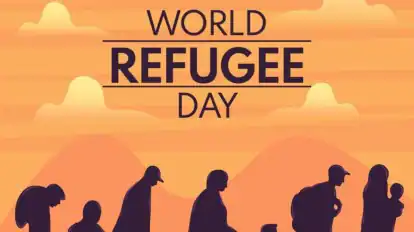Marine plastic pollution is a pressing global environmental crisis, significantly affecting West African coastal cities. These cities, characterized by dense populations, bustling ports, and rapid economic development, face unique challenges in managing plastic waste. The combination of inadequate waste management systems, economic constraints, and increasing plastic consumption exacerbates the problem.
The extent of marine plastic pollution in West African coastal cities is pervasive and growing. The sources of marine plastic pollution in West Africa are diverse and multifaceted, including urban waste, industrial discharge, tourism, and riverine transport. According to the United Nations Environment Programme (UNEP), over 8 million tons of plastic end up in the world’s oceans every year, and West Africa is a significant contributor.
Africa’s economic growth and insufficient regulatory frameworks are significantly contributing to the increase in plastic pollution. The mismanagement of plastic waste is prevalent across the continent in most sub-Saharan African countries. Generally, short-life products such as plastic packaging are responsible for generating more than 80% of the waste, whereas medium to long-life products in sectors like agriculture, electronics, automotive, and construction contribute less than 35% to the total waste, even though both categories are consumed at full capacity.
The top producers of plastic waste in Africa include Egypt, Nigeria, South Africa, Algeria, the Democratic Republic of Congo (DR Congo), and Tanzania. A report by the United Nations Industrial Development Organization (UNIDO) in 2022 estimated that Nigeria alone produced around 2.5 million metric tons of plastic waste annually, with 10-20% entering the marine environment. Similarly, a report by the International Institute for Applied Systems Analysis (IIASA) reveals that Ghana generates approximately 1.1 million metric tons of plastic waste each year, with a substantial fraction leaking into the ocean.
Rapid urbanization in coastal cities like Lagos and Accra has led to increased plastic consumption and waste generation. The World Bank reports that Lagos generates about 13,000 metric tons of waste per day, with a significant portion being plastic. Inadequate waste management infrastructure leads to improper disposal, with plastic waste often ending up in the ocean.
The Food and Agriculture Organization (FAO) notes that plastic debris from fishing gear, packaging materials, and ship waste is a major source of marine litter in the region. Coastal tourism, which is a vital economic activity in countries like Senegal and Cape Verde, generates considerable plastic waste. The UN World Tourism Organization (UNWTO) reports that tourism in Senegal generated over $1.5 billion in 2019, but also led to significant plastic pollution from tourist activities.
Rivers such as the Niger and Volta transport large amounts of plastic waste from inland areas to the coast. A study published in the journal Environmental Science & Technology estimated that the Niger River alone carries around 80,000 tons of plastic waste to the Atlantic Ocean annually.
Impacts of Marine Plastic Pollution in Africa
The impacts of marine plastic pollution in West Africa are severe and multifaceted, affecting marine ecosystems, human health, and local economies.
Marine plastic pollution poses a significant threat to marine biodiversity. The African Marine Waste Network reports that ingestion of plastics causes physical harm and death to marine animals such as sea turtles, fish, and seabirds. Additionally, plastics can transport invasive species and pollutants, further disrupting marine ecosystems.
The economic cost of marine plastic pollution is substantial. The fishing industry, a major source of livelihood in West Africa, suffers from reduced fish stocks and damage to fishing gear. According to the West African Journal of Fisheries and Aquatic Sciences, plastic pollution has led to a 30% decline in fish stocks in some areas. Coastal tourism, another critical economic sector, is negatively impacted by polluted beaches, leading to a decline in tourist arrivals and revenue. The UNWTO estimates that polluted beaches in West Africa could lead to a 10-20% reduction in tourism revenue.
Microplastics, which result from the breakdown of larger plastic items, are ingested by marine organisms and can enter the human food chain. The World Health Organization (WHO) has raised concerns about the potential health risks associated with the consumption of seafood contaminated with microplastics, including endocrine disruption and other health issues.
Efforts to Combat Marine Plastic Pollution
Addressing marine plastic pollution in West Africa requires a multifaceted approach involving government action, community engagement, and international cooperation. Several initiatives and strategies have been implemented or proposed to tackle this pressing issue.
Governments in West African countries are increasingly recognizing the need for robust policies to manage plastic waste. For instance, Ghana introduced the National Plastic Management Policy in 2020, aiming to promote the circular economy and improve waste management infrastructure. Senegal banned single-use plastics in 2020 to reduce the amount of plastic waste generated.
Improving waste management systems is crucial to reducing plastic pollution. In Lagos, the Lagos State Waste Management Authority (LAWMA) has implemented community-based waste management schemes and public awareness campaigns to reduce littering and promote recycling. LAWMA’s initiatives have led to a 20% increase in waste collection and recycling rates.
Technological innovations and creative solutions are being explored to tackle plastic pollution. These initiatives not only reduce plastic waste but also create economic opportunities for local communities.


